Key Takeaways
- The Twin Cities mortgage process involves several key stages: pre-approval, appraisal, underwriting, and closing.
- Pre-approval gives buyers a competitive edge in a fast-moving market.
- Working with local experts ensures smoother coordination and faster communication.
- Avoid major financial changes until your loan is finalized.
- Organization and prompt responses are essential for a quick, successful closing.
How the Mortgage Process Works in the Twin Cities
Buying a home in the Twin Citiesis a major milestone—and understanding the mortgage process can make it much smoother. Whether you’re purchasing your first home or upgrading to your next, knowing what happens from application to closing helps you plan with confidence.
What Makes the Twin Cities Mortgage Process Unique?
The Minneapolis–St. Paul metro area offers a wide range of loan programs, property types, and price points. Because the market is competitive, especially in desirable neighborhoods, being prepared and pre-approved can make a big difference. Working with a local lender familiar with Minnesota’s housing marketgives you an edge in timing, loan options, and personalized guidance.
What Are the Main Steps in the Mortgage Process?
The process typically involves several stages:
- Pre-approval
- Home search and offer
- Application and documentation
- Appraisaland underwriting
- Loan approvaland closing
Each step plays a critical role in ensuring your financing is secure before you receive the keys to your new Twin Cities home.
Step 1: How Does Pre-Approval Work?
Pre-approval is your starting point. Lenders review your credit, income, assets, and debts to determine how much you can afford. You’ll receive a pre-approval letter showing your approved loan amount, which helps when making an offer on a home.
Documents You’ll Need for Pre-Approval
- W-2s and pay stubs
- Bank statements
- Photo ID
- Tax returns for self-employed borrowers
In the Twin Cities, pre-approval is essential—many sellers won’t accept offers without it.
Step 2: What Happens When You Find a Home?
Once pre-approved, you can begin house hunting with your real estate agent. When you find the right home, your agent will help you submit an offer that includes your pre-approval letter. If the seller accepts, the home goes under contract, and your mortgage application moves forward.
Step 3: What Does the Formal Loan Application Involve?
After your offer is accepted, you’ll complete a full mortgage application with your lender. This includes providing updated financial information and finalizing the type of loan, rate, and terms.
Common Loan Options in the Twin Cities
- Conventional loansfor borrowers with strong credit
- FHA loansfor first-time buyers with smaller down payments
- VA loansfor eligible veterans and active service members
- USDA loansfor properties in eligible suburban or rural areas

Step 4: What Is the Appraisal Process?
The lender orders an appraisal to ensure the home’s value matches the loan amount. A licensed appraiser inspects the property and reviews comparable sales in the area.
If the appraisal value comes in lower than expected, you may need to renegotiate the price, make a larger down payment, or provide additional documentation to move forward.
Step 5: What Happens During Underwriting?
Underwriting is when the lender verifies your financial information and evaluates the property’s details. The underwriter ensures that both you and the home meet all loan requirements.
During This Stage
- Employment and income are re-verified.
- Credit and debt levels are reviewed again.
- The appraisal and title report are finalized.
If the underwriter identifies conditions (such as missing documents), your loan officer will help you address them promptly.
Step 6: What Is a Conditional Approval?
A conditional approval means your loan is nearly ready but requires final verification of certain details—such as proof of insurance or updated pay stubs. Once you satisfy these conditions, your lender issues a clear to close notice.
Step 7: What Happens at Closing?
Closing is the final step before you get the keys. You’ll review and sign the closing disclosure, which outlines your loan amount, interest rate, monthly payment, and closing costs. You’ll also pay any remaining down payment or fees at this stage.
Typical Twin Cities Closing Timeline
Most closings occur within 30–45 days after the offer is accepted, although this can vary based on loan type and appraisal timing.
What Should You Avoid During the Process?
To keep your approval intact, avoid:
- Opening new credit cards or taking on new debt
- Making large purchases like furniture or vehicles
- Changing jobs without informing your lender
- Missing any existing loan or credit card payments
Even small financial changes can affect your eligibility before closing.
How Can You Speed Up the Process?
- Respond quickly to lender requests.
- Keep all financial documents organized.
- Stay in communication with your lender and real estate agent.
- Get pre-approved before house hunting.
Being proactive keeps your loan on schedule and minimizes last-minute stress.
Partner with a Local Twin Cities Mortgage Expert
Navigating the mortgage process doesn’t have to be complicated. Refined Lending’s Twin Cities mortgage specialists help you through every step—from pre-approval to closing day. We’ll review your options, explain each stage clearly, and ensure your financing stays on track.
Contact Refined Lending todayand learn how our team can help you move smoothly through the Twin Cities mortgage process.


